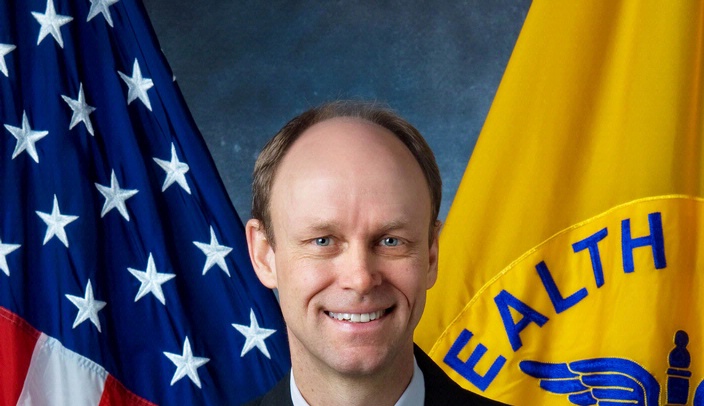A top official from the Centers for Disease Control and Prevention (CDC) who spent six months working to help control the Ebola epidemic in West Africa, including five weeks in Liberia last fall, will discuss the scale of the unprecedented outbreak and the response by the CDC at a Monday lecture at the University of Nebraska Medical Center.
Omaha native Jordan Tappero, M.D., M.P.H., director of the Division of Global Health Protection (DGHP), Center for Global Health, will give the presentation, “CDC’s Response to Ebola in West Africa,” at 1:15 p.m. Monday in the Sorrell Center, Room 3002 (Fred Paustian Amphitheater).
The presentation is part of UNMC’s observance of Public Health Week.
Dr. Tappero, a 1982 graduate of UNMC’s College of Medicine, was in Liberia in 2014 as incident manager for CDC teams in West Africa and as the first CDC lead for the public health and medical response for the United States Government’s (USG) Disaster Assistance Response Team (DART).
Upon returning to Atlanta in late September, he served as deputy incident manager through January 2015 for the CDC Director’s Ebola Response, assisting with directing the day-to-day international and domestic response activities managed through CDC’s Emergency Operations Center.
A 1976 graduate of Omaha Westside High School, Dr. Tappero is a former CDC colleague of Ali Khan, M.D., M.P.H., dean of UNMC’s College of Public Health.
“Jordan can provide a truly unique perspective on what’s happening in West Africa,” Dr. Khan said. “I am grateful he reached out to me and offered to speak on our campus – his alma mater.”
Dr. Tappero said that work in West Africa has been nonstop.
“I have seen what needs to be done to stop Ebola from spreading. But the scale of this Ebola outbreak is unprecedented,” Dr. Tappero said. “In 2014, the systems in place to identify, refer, isolate and treat Ebola cases were overwhelmed.
“Knowledge of how the disease is spread varied from community to community, and unsafe burial practices were taking place far and wide. Though the global response has vastly improved, our work there is ongoing. We are committed to getting to zero cases of Ebola transmitted and to public health system recovery efforts post Ebola.”
As part of the CDC and DART teams, he helped find people with the virus in the community, get them into Ebola treatment centers and improve infection control practices to prevent the spread of the virus to health care workers and burial teams.
Dr. Tappero has returned to his duties as director for DGHP. He is responsible for implementing CDC’s contribution to the USG’s Global Health Security Agenda (GHSA). DGHP is CDC's most visible program for strengthening global health security and developing public health capacity to prevent, detect and respond to communicable infectious disease threats around the world.
DGHP builds capacity in applied epidemiology through field epidemiology training programs and fosters the development of National Public Health Institutes with Ministries of Health globally. In the event of a global disease epidemic or humanitarian disaster, DGHP often leads CDC’s global response.
Dr. Tappero led CDC’s emergency response following the 2010 Haiti earthquake and follow-on response to epidemic cholera. Dr. Tappero joined CDC in July 1992 as an epidemic intelligence service officer, is a captain in the U.S. Public Health Service, maintains three American board certifications and holds a master’s degree in public health from the University of California, Berkeley.
He has authored or co-authored more than 250 peer-reviewed publications, as well as textbook chapters on HIV, TB, malaria, meningococcal disease, leptospirosis, Ebola and Marburg hemorrhagic fever, cholera and other emerging infections.
Through world-class research and patient care, UNMC generates breakthroughs that make life better for people throughout Nebraska and beyond. Its education programs train more health professionals than any other institution in the state. Learn more at unmc.edu and follow us on social media.
UNMC | Facebook | Twitter | YouTube | Flickr
